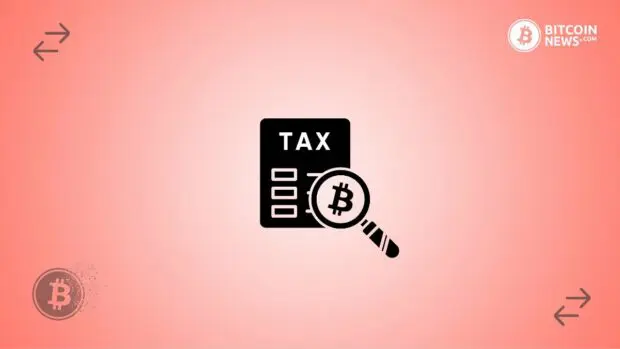Bitcoin taxes are complicated and always have been. There’s no shortcut to understanding how they are taxed, seeing that every country around the world will have different regulations and tax policies in place, and have different reporting requirements.
In recent months, there have been a lot of headlines, both positive and negative, floating around online, only further adding to the confusion over BTC taxes, and the larger digital asset arena.
Yet, this year seems like it will be no different, with regulators putting digital assets and their regulation at the top of their priority list, and further cranking the handle to see how they can begin to introduce new rules, regulations, and tax codes for digital assets.
Your Bitcoin, Taxed
How your BTC will be taxed this year will depend on many things, but two themes are likely to stand out above the other. BTC taxes are calculated based on specific requirements. For starters, bitcoin holders that acquired the asset through mining, or have acquired it as a form of payment from another holder will be required to report the value thereof as taxable income.
This implies that you will be planning to hold onto your BTC and that you’re not necessarily looking to sell it, trade it, or use it for another transaction before declaring the transaction with the IRS, or any other local tax authority.
Secondly, how you’ve used your BTC during the year will depend on how your BTC will be taxed. Again, this includes how you have transacted with your BTC—whether disposing of it, cashing it on an exchange, using it as a currency to pay or buy goods and services, or trading it for another digital asset. You will owe taxes on these transactions.
However, the explanation around this becomes seemingly murky, to some extent at least. Some tax codes require holders to report and pay taxes on BTC transactions, regardless of the method of transaction or use, only if the realized value is higher than the actual price at which the BTC was acquired.
Well, that’s where things become even more complicated, especially for bitcoin holders who are using their BTC for ordinary transactions, such as paying for goods and services or even simply exchanging that BTC on the market for other digital assets, or cash. The understanding here is that any transaction completed with BTC, or any other digital asset for that matter, may have incurred a profit, and where there’s a profit, there are capital gains, which translates into holders having to report these capital gains as taxable, either at short-term or long-term rates.
The difficulty perhaps for many people is that there is not a minimum threshold involved with bitcoin tax reporting. This implies that any transaction, regardless of whether it is $100 or $10,000 should be reported to the IRS. In United States, like most parts of the world nowadays, digital assets are generally taxed the same as stocks and bonds: capital gains.
For bitcoin holders, this would perhaps mean the same thing. Profits from buying and selling BTC would be taxed as capital gains. Holders will then be required to declare any profits from their BTC, whether through buying, selling, or mining. It’s the same as what the ordinary Wall Street investor has to do each year after buying and selling stocks on the public market.
But Wait, There’s More
As with anything to do with taxes, there’s always more to know. This is at least true in the United States and the IRS.
There are other things to know as well when it comes to your digital assets, including your BTC. When paying taxes on the profits that you have made from any BTC transaction, either through buying or selling, the rate of taxes you need to pay will depend on two things.
How Long You’ve Owned BTC Before Selling
Something else to take into consideration is the amount of time you’ve owned BTC before selling it for a profit. In this case, those holders that have had BTC for one year or less before selling it back in an exchange, will typically face higher tax rates. This is usually considered as capital gains, or profits, and is taxed as capital gains.
On the other hand, if you owned bitcoin for more than a year, or even longer than the running financial year, your tax rates will be substantially lower. For instance, those who hold BTC for less than a year can face tax rates of anything between 10% and 37%. Mature BTC assets, older than a year, will typically face rates between 0% and 20%. This breakdown is best explained under the short and long-term capital gains tax rates and brackets breakdown of the IRS. For further consideration and more information, you can review this breakdown on their website.
You and Bitcoin Taxes
Digital asset taxes seem to be an uphill battle many people face each year. Understanding the complexities navigating various tax codes and regulations can put any person on a winding road of never-ending questions.
Failure to report and pay any taxes can lead to severe fines or penalties, or the potential of criminal charges, and making the right choices could help you in the long run. While there is a lot more ground to cover in terms of digital asset taxes and how you should be reporting all of your Bitcoin transactions, finding an accountant might be the most reliable option for you to avoid any possible penalties in the future.
We’re hoping to see some changes and improvements in the coming years. As more regulators begin to better understand the development of digital assets in the wider scope of things, and bitcoin becomes a more accepted part of the economy, perhaps a revision of current tax codes could help reduce a lot of holders’ confusion, and provide them with a more forward-looking tax code that benefits everyone.










